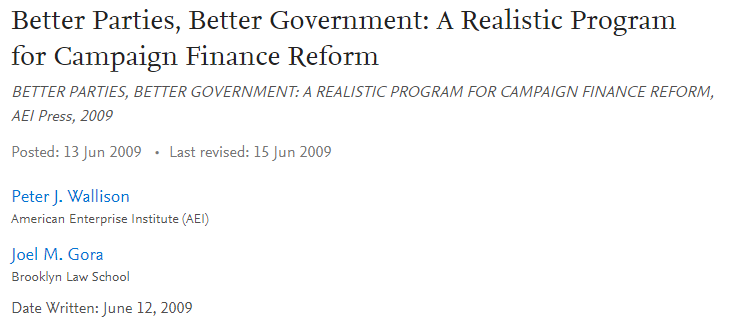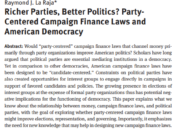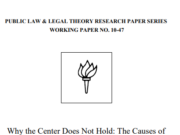In Better Parties, Better Government: A Realistic Program for Campaign Finance Reform (Washington, D.C.: American Enterprise Institute Press, 2009), authors Joel M. Gora and Peter J. Wallison conduct a significant survey of campaign finance regulations beginning in the early 1970’s.
The authors assert that most of the provisions enacted over the past several decades have failed to achieve their goal of limiting corruption and instead have acted to strengthen the incumbency advantage. According to Gora and Wallison, “the current campaign finance system works to assist the campaigns of those who created it.”
After their exhaustive look at the history of campaign finance reform measures, Gora and Wallison examine past and current alternatives to remedy the broken system. They conclude that most reform schemes further the incumbency advantage, with taxpayer financed campaigns and contribution limits being the biggest offenders in this regard.
To remedy this issue, the authors demonstrate that the best and most effective way to fix the current incumbent-advantaged system would be to ease the coordination restrictions on parties, allowing them to become the principle campaign financier. Ultimately, the authors argue that this single change in the current system would have substantial benefits for the American election model.














